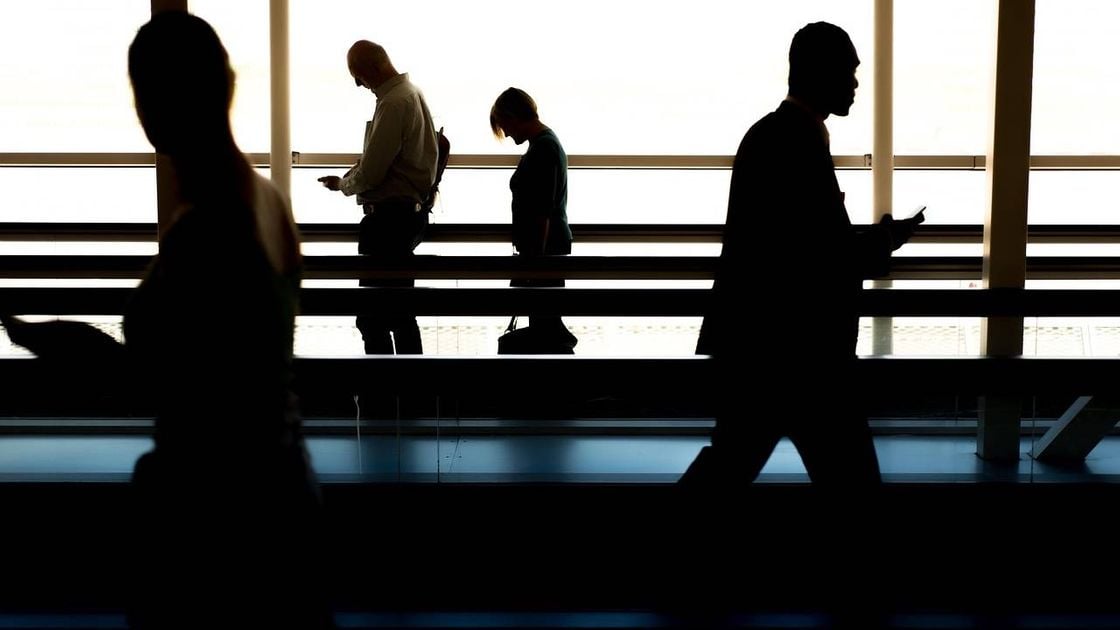Customers who book their rental cars directly instead of through an online or traditional travel agent report far higher satisfaction levels.
Photo: Clicker Happy / Pixabay
After winning over customers last year, the travel industry is facing a familiar challenge: keeping them happy, according to the American Customer Satisfaction Index (ACSI) Travel Study 2025, released last month.
The travel segment reversed the gains in satisfaction it enjoyed last year, as car rentals, airlines, lodging, rideshare services, and online travel agencies all lost ground.
Notably, the airline industry — which reached a record high last year — slipped 4% to an ACSI score of 74 amid softening demand, a shifting economic outlook, and signs of turbulence ahead for premium travel services.
“Across much of the travel segment, the satisfaction drop is being driven not by bargain hunters, but by business travelers and other high-value customers,” said Forrest Morgeson, associate professor of marketing at Michigan State University and director of research emeritus at the ACSI, in a news release. “With spending patterns under pressure and pricing power fading, providers will need to work harder to deliver consistent value across all customer segments.”
National Car Rental Slides to Last Place
Customer satisfaction with the car rental industry declined 3% to 75 as customer complaints accelerate year over year.
National, the industry leader at a stellar 84 last year, was among the top 10 companies measured. This year, it plummeted 15% to 71 and fell to the bottom of the industry. Customers give National notably lower ratings in nearly every aspect of their experience, but showed large drops for the pick-up experience, perceptions of value for money, and courtesy and helpfulness of personnel.
A silver lining for National’s parent company is that its namesake brand, Enterprise, led the industry at 78 (up 1%). Budget was the biggest riser as it moved into second, increasing 5% to 77 by improving its pick-up experience, website, and mobile app. Hertz, down 3%, came in third at 76, followed by Avis, which suffered a notable 5% decline in renter satisfaction to 74 due to lower customer ratings of the pick-up and drop-off experience.
The study results indicate technology’s role in providing satisfying customer experiences.
Customers who book their rentals directly instead of through an online or traditional travel agent report far higher satisfaction levels.
Southwest Soars to Top of Airlines
Southwest, one of only two airlines to improve this year, dethroned Alaska as the top airline and led the industry after climbing 3% to an ACSI score of 80. Delta and JetBlue are next, both steady at 77, followed by Alaska, which tumbled 7% to 76.
American experienced the sharpest drop, falling 8% to 73. The decline stemmed from operational setbacks; American consistently showed higher rates of passengers involuntarily bumped from flights than the other mainline carriers and a loyalty program overhaul failed to resonate.
Spirit increased 3% to 69 despite facing a decrease in flight operations. The bargain airline appears to be taking advantage of lower volumes to improve its customer service, including eliminating change and cancellation fees for all passengers. Frontier fell to last, dropping 6% to 65.
The erosion extended across the entire customer experience, with the usefulness of flight information (71) and the quality of in-flight Wi-Fi (66) debuting at the bottom.
Lyft Edges Out Uber
Satisfaction with rideshare services showed a small decline, falling 1% from its debut last year to 75.
Market leader Uber slipped 1% to an ACSI score of 75. Meanwhile, Uber’s principal competitor, Lyft, posted a 1% improvement to lead the industry at 77.
First-time and infrequent Lyft users (three times per month or less) posted a satisfaction increase of 7%, whereas the most frequent users (those using the service six times or more in the past month) showed a 3% satisfaction drop.
Rideshare services saw the steepest declines in key areas of the experience, including ease of drop-off, ease of identifying the driver, payment options, and driver courtesy.
Booking.com Remained On Top
Online travel agencies (OTAs) dropped 3% to an ACSI score of 75, with all the measured brands and all components of the customer experience declining. As airlines and hotels have improved their website experiences, more customers skip OTAs to book travel and experiences directly.
Booking.com remained in first place despite dropping 3% to 78. Other Booking Holdings brands also slip: Priceline slid 3% to 74 and Kayak dropped 5% to 69.
Expedia (77), smaller travel agencies (76), and Tripadvisor (74) all dipped 3%.
Orbitz sat in last place after dropping a striking 10% to an ACSI score of 66.
Hilton Holds Top Lodging Spot
Guest satisfaction with lodging ended a two-year run of increasing scores and slid 1% to an ACSI score of 76.
Hilton continued to lead the industry despite slipping 1% to 80, followed closely by IHG (up 1% to 79). Airbnb (no change) and Marriott (down 1%) are not far behind at 78. G6 Hospitality, the parent company of Motel 6, earned last place at 67 — one spot behind Wyndham, which improved 1% to 71.
Among lodging brands, Marriott Hotels claims first place at 82, followed by Hilton Hotels & Resorts (81), IHG’s Holiday Inn Express (81), Hilton’s Hampton (80), and Hilton Garden Inn (80). Wyndham’s Days Inn (70), G6 Hospitality’s Motel 6 (67), and Wyndham’s Baymont (62) are at the bottom.
Nearly every aspect of the legacy lodging business model is changing rapidly, with developments in the broader industry, like the rise of boutique properties and the increase in “bleisure” travel mixing work and play, creating new and shifting customer needs and expectations.
The rise of home-share brands like Airbnb also posed a challenge to traditional lodging brands, with solid satisfaction ratings that meet and often exceed those of the midscale brands that frequently share their price point.
The ACSI Travel Study 2025 is based on 16,771 completed surveys. Customers were randomly chosen and contacted via email between April 2024 and March 2025.

